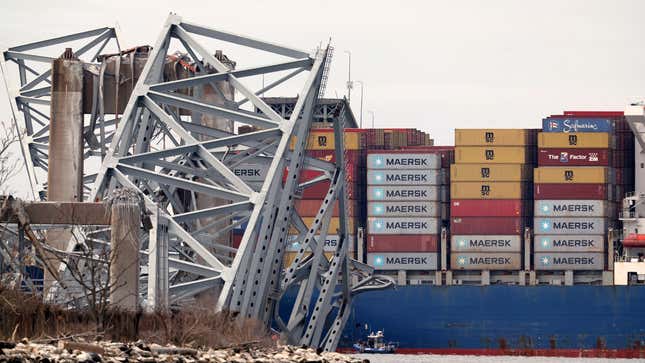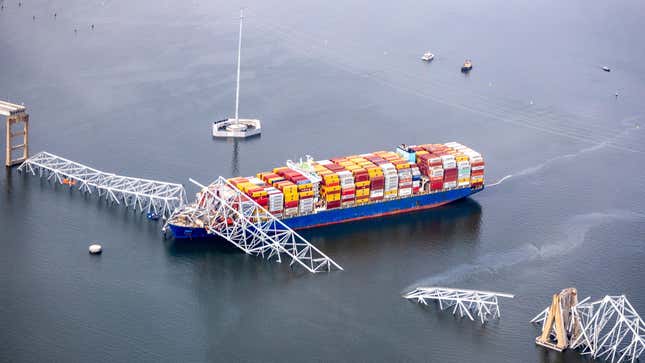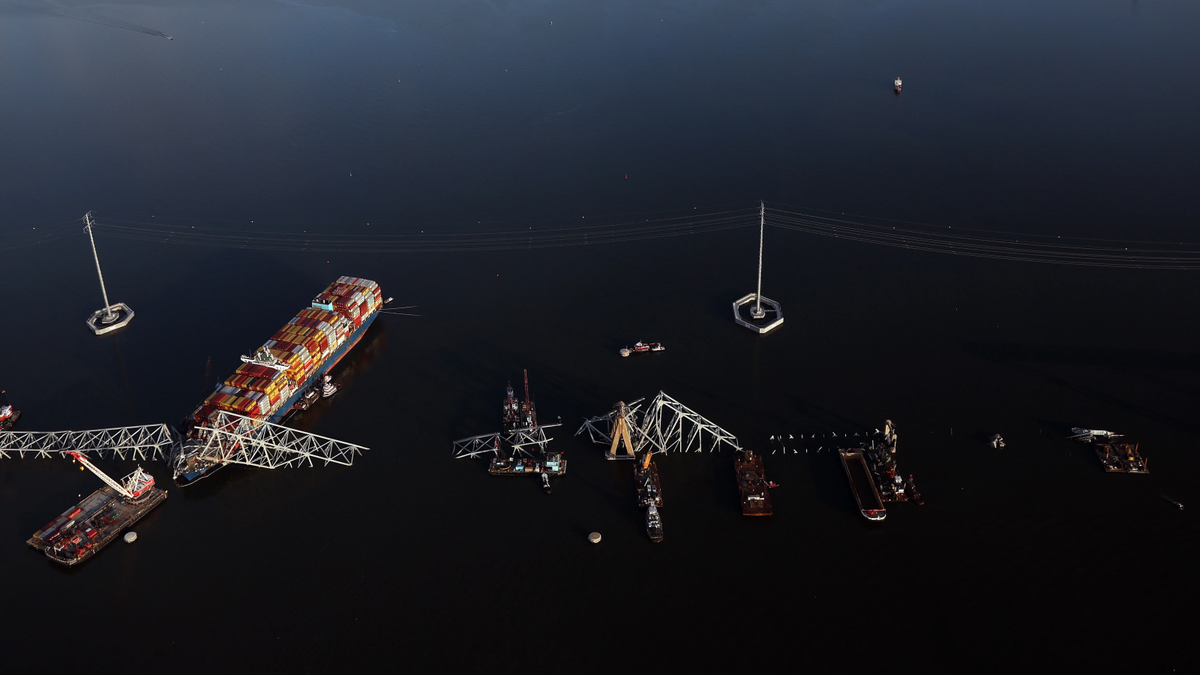More than eight months after a huge container ship hit and destroyed the Francis Scott Key Bridge in Baltimore, investigators have begun piecing together the failures that led up to the disaster. The Dali ship hit the vital river crossing after a blackout onboard and now it’s emerged that the loss in power could have been caused by loose cables and low fuel pressure on the ship.
The 984-foot long Dali collided with one of the supporting structures on the 8,636-foot-long Francis Scott Key Bridge at around 1:30AM on March 26, 2024. The collision brought down the deck of the bridge and killed six workers on the crossing at the time.
A report from the BBC has now unearthed the failings onboard that led up to the collision, and pinpoints two power outages onboard as key in leading to the disaster. The first occurred moments before the ship hit the bridge and was reportedly as a result of loose wires on the ship while the second came when fuel pressure in an onboard generator dropped:
A preliminary report from the National Transportation Safety Board, or NTSB, found that two electrical blackouts disabled equipment ahead of the incident, and noted that the ship lost power twice in the 10 hours leading up to the crash.
In the aftermath, NTSB investigators were tasked with determining what happened. Eventually, they discovered a loose cable, which it is believed may have caused a power surge that tripped two breakers and disrupted electricity.
As the crew struggled to restart the engine, a second blackout took place, likely as the result of a pump supplying generators with fuel shutting down and not restarting automatically.
Investigators looking into the crash added that the issues with the onboard generators could have created further power fluctuations that would have tripped the ship’s circuit breakers. The power outage came just four minutes before the ship struck the bridge, meaning that there was little the crew could do to control the enormous vessel as it plowed head first into the Key Bridge.

Thankfully, law enforcement was able to clear the bridge of traffic in the time before the ship struck and the loss of life from the crash was minimized. In the end, just six people were killed when the bridge came down and they were all maintenance crews working on the bridge that evening.
The loss of life and the more than $100 million in damage that was caused by the crash has led lawmakers to consider pressing criminal charges against the companies behind the ship. The Dali’s owner, Grace Ocean Private Limited, and manager, Synergy Marine Private Limited, could face prosecution as a result of the collision.
Federal investigators are reportedly close to reaching a decision over criminal chargers that could be levied against the two companies, reports the Baltimore Banner:
Federal prosecutors are closing in on criminal charges in the Key Bridge disaster and could take their case to a grand jury sometime in the new year, according to sources with knowledge of the case.
But uncertainty over President-elect Donald Trump’s plans for the Department of Justice and the Maryland U.S. Attorney’s Office has raised the possibility that, if charges are not brought before Trump’s inauguration, the case could be delayed or reduced in scope.
Synergy Marine and Grace Ocean have reportedly been cooperating with authorities throughout the investigation into the disaster, but Baltimore Banner added that “everything is trending in the direction of potential charges” being brought against the two Singapore-based companies.

For a full timeline of the events that led up to the collapse of the Francis Scott Key Bridge on March 26, you can head here to find out more. Or, if you want to explore the wreckage of the bridge for yourself to see what damage the ship caused, head here.


